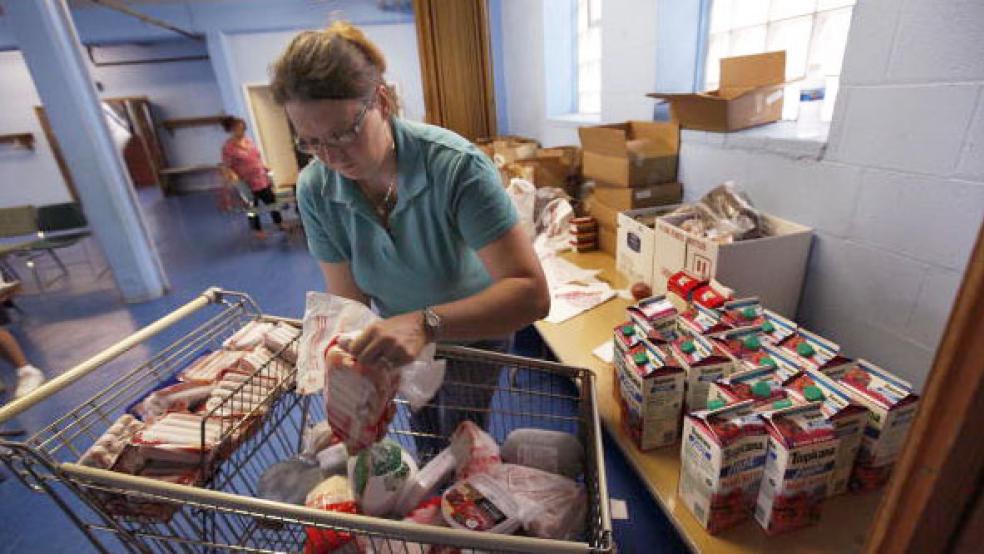Food, water and shelter are basic human needs, but there’s growing evidence that food is becoming harder for many Americans to put on the table.
In June, 46.7 million people received food stamps—an all-time high—and a report released Wednesday by the Department of Agriculture found an estimated 14.9 percent of U.S. households (or 17.9 million of them) said they had difficulty at some point in 2011 buying food due to lack of funds or other resources. This is up from 14.5 percent of households the year before.
RELATED: The 12 Worst Supermarkets in America
Extreme temperatures and drought in the Midwest this summer have also damaged corn crops, inflating the price per bushel to new heights, which could put a strain on the grocery budgets of even more Americans in coming months.
A new trend, recently investigated by National Public Radio, could save consumers hundreds of dollars — but only if they’re willing to forgo freshness. Supermarkets are hosting “food auctions,” in which consumers are lining up to buy soon-to-expire or just-expired food.
In St. Leonard, Md., 80 people attended an auction to buy frozen chicken at about $1 per pound and blueberry granola for $1.50. One frequent food auction attendee, Dave Ring, purchased a case of 12 yogurt containers for a grand total of $2.50; the yogurt was missing the expiration date, but he decided they were fine after eating a spoonful. “I have no idea [how old it is],” he told NPR. “Don’t really care!”
Though the USDA recommends that manufacturers put expiration dates on meat and dairy products for quality assurance, the dates are only required by law on infant formula. Store owners often pull the product off the shelves well before it has spoiled, or manufacturers shorten the expiration date for marketing reasons to make the product appear “fresh.” Some items, like vinegar, can last well past their expiration date. But all of this raises the question: How far will Americans go to save on groceries?


